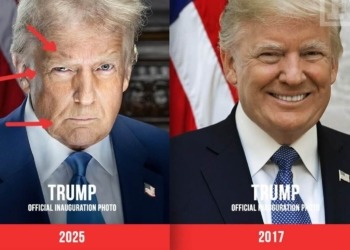The FINANCIAL — The British government declared that, it will bar telecom companies from purchasing new equipment made by Huawei Technologies Co. and told them to remove its technology from their 5G networks until 2027. John Browne will step down as chairman of Huawei’s UK board six months early, in a move that was revealed just hours before the UK government unveiled plans to phase out the Chinese telecoms equipment maker from the country’s mobile network.
The U.K. announced Tuesday it will ban Huawei from its 5G networks, in a significant U-turn by the government that could significantly dent relations with China while appeasing the U.S. Speaking in Parliament, U.K. Culture Secretary Oliver Dowden said mobile network operators in the country would be forced to stop buying equipment from Huawei by the end of the year. They will also be required to strip out Huawei gear from their infrastructure by 2027, CNBC wrote.
It’s a reversal of the decision made in January when the UK allowed the use of Huawei equipment in the U.K.’s 5G network.
In January, ministers announced the company would be kept out of the sensitive core of the 5G network – including national intelligence – but be allowed involvement in up to 35% of other parts. This prompted criticism from backbench Conservative MPs, marshalled by Mr Duncan Smith, who called Huawei an arm of the Chinese Communist Party and a risk to the UK. The US, with which the UK shares much of its intelligence, also applied diplomatic pressure for a rethink, BBC reported.
Ed Brewster, a spokesperson for Huawei UK said that this decision is bad news for anyone in the UK with a mobile phone and it threatens to move Britain into the digital slow lane. He urges the government to reconsider the decision and adds that Huawei’s future in the UK has become politicized and this is about US trade policy and not security.
The United States has effectively banned Huawei and other Chinese companies from its nascent 5G platforms — wireless telecommunications networks seen as the key to revolutionary advances in the way people live, work and play. For much of the past two years, the Trump administration has sought, often seemingly in vain, to persuade allies to follow suit. In May, the United States imposed an export control that cut Huawei off from a key source of semiconductors made with U.S. technology, leading British officials to doubt they could count on the security of Huawei’s equipment. Now, with Britain joining the anti-Huawei fold, all “Five Eye” members of the world’s most powerful intelligence-sharing alliance — Britain, the United States, Canada, Australia and New Zealand — or wireless carriers in their countries, have effectively excluded or are moving to exclude Chinese firms from their 5G networks, as reported by The Washington Post.
Officials also want Huawei to be removed from high-speed, full-fibre connections following a two-year transition period, working with companies to find a way of eliminating the Chinese company’s equipment. No compensation is expected to be paid to BT or Vodafone or Huawei. BT’s chief executive had said on Monday it would be possible to remove Huawei from 5G in five years – but warned that it would be impossible to remove older equipment entirely within 10 years, according to The Guardian.
Huawei responded UK’s decision on its Huawei UK Twitter account ,saying: “Instead of ‘levelling up’ the government is levelling down and we urge them to reconsider. We remain confident that the new US restrictions would not have affected the resilience or security of the products we supply to the UK.”
Earlier this year, Huawei was proud to announce that it had secured more than 90 commercial 5G contracts worldwide, an increase of nearly 30 from last year despite the relentless pressure from U.S. authorities.
John Browne will step down as chairman of Huawei’s UK board six months early, in a move that was revealed just hours before the UK government unveiled plans to phase out the Chinese telecoms equipment maker from the country’s mobile network. Lord Browne, who ran oil company BP between 1995 and 2007, will leave Huawei’s UK board in September, having spent five years as its first independent chairman. His appointment was crucial to the Chinese company’s attempts to dispel concerns about its corporate governance and independence from the Chinese state, The Financial Times wrote.
































Discussion about this post